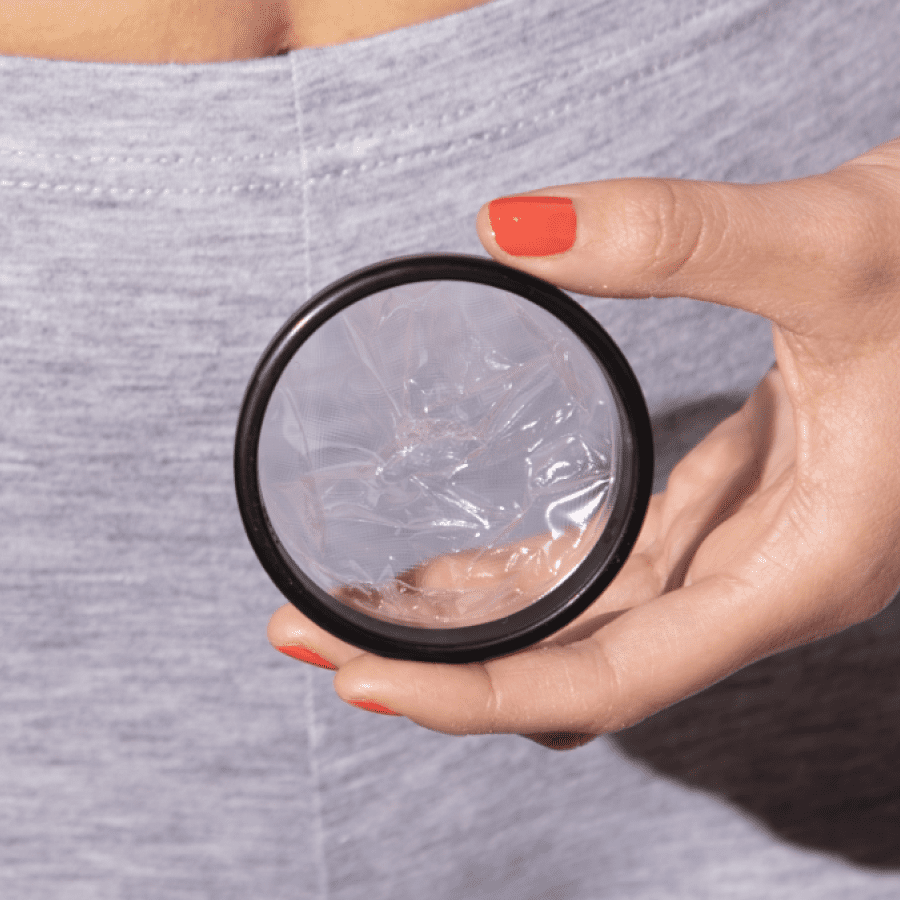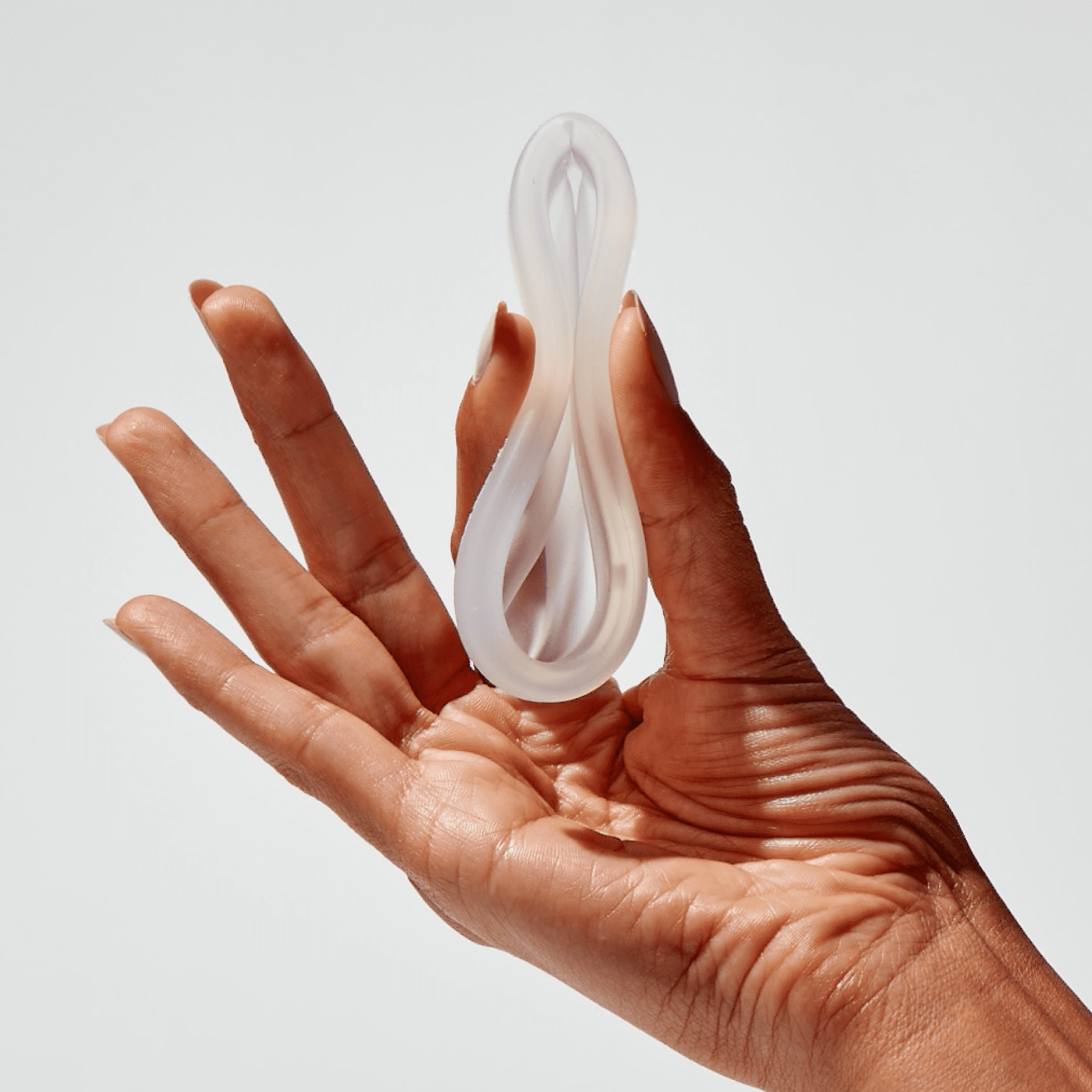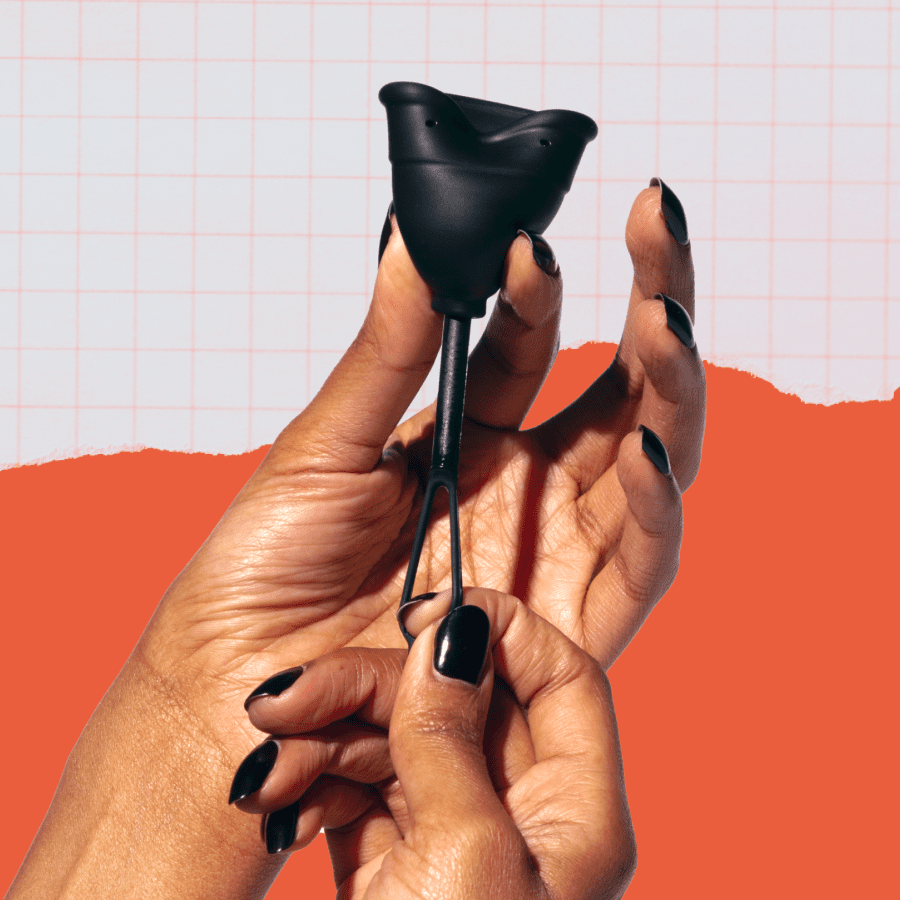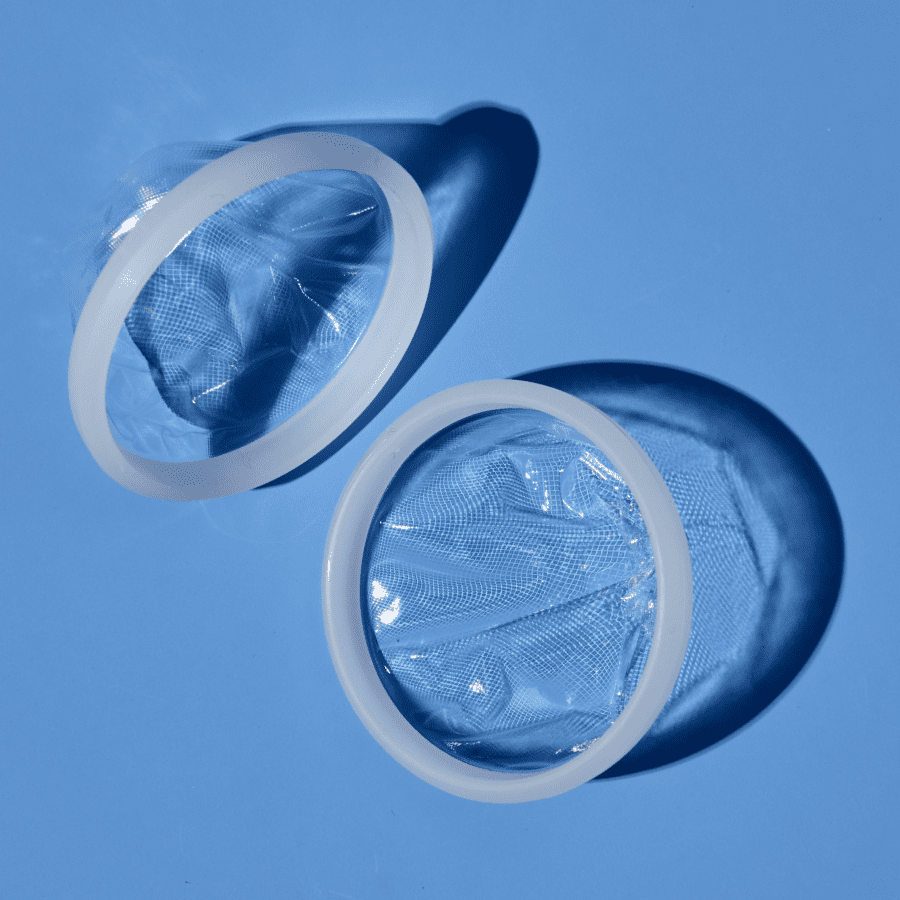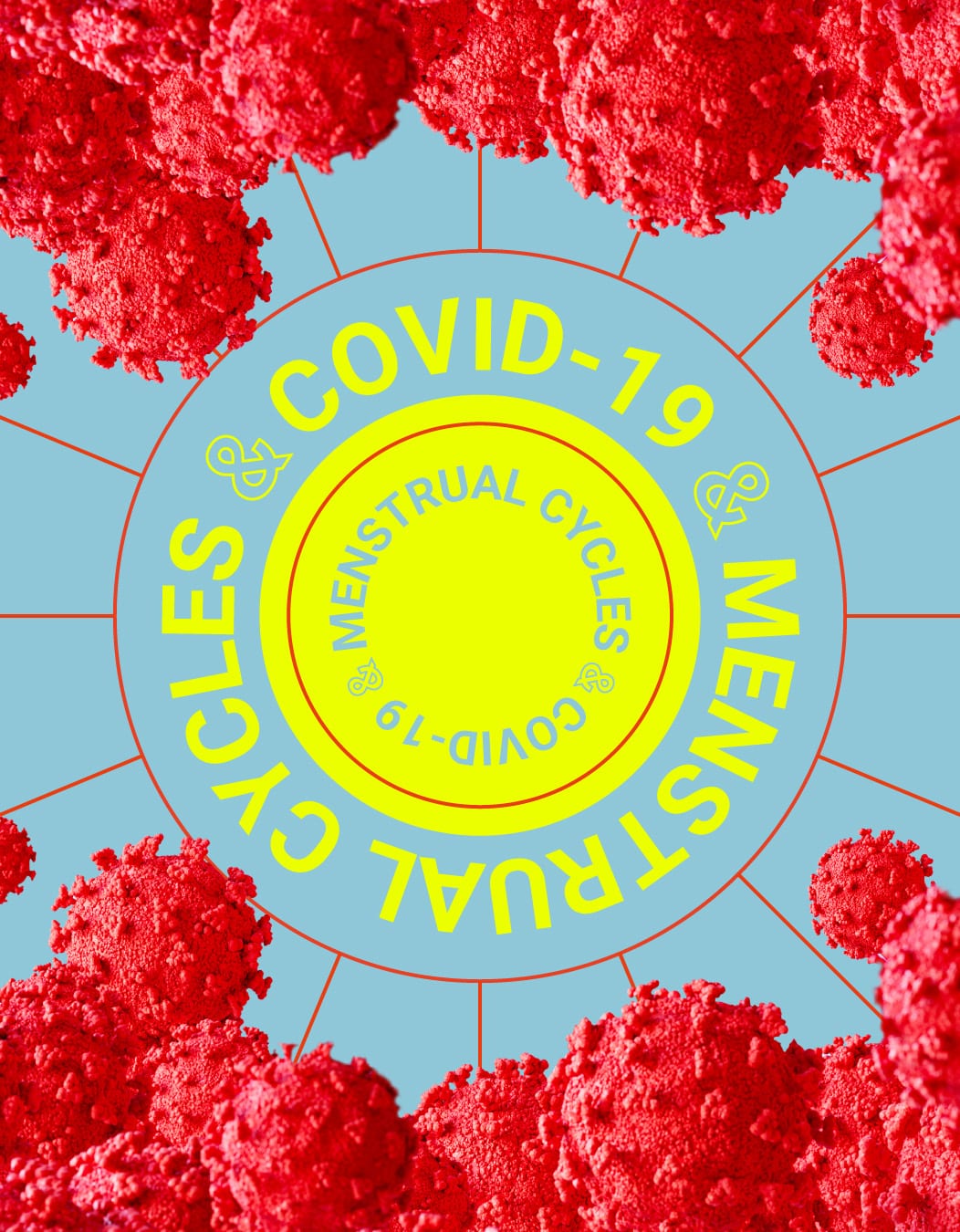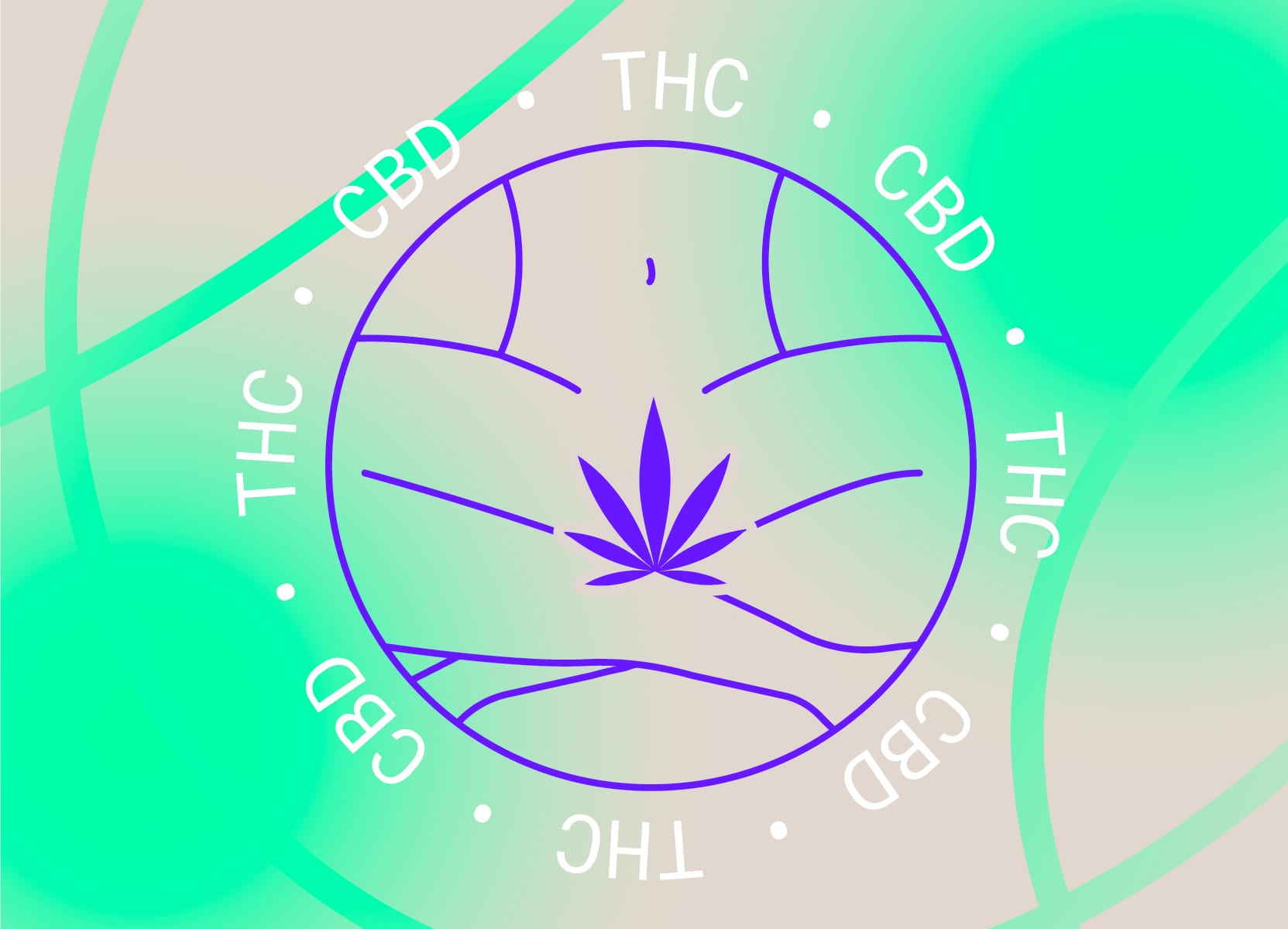Can depression affect your period? The menstrual cycle & mental health
Exploring the relationship between depression, anxiety, and your cycle
Am I depressed, or is it just PMS? If you find yourself pondering this question—say, once a month or so—you’re not alone.
After all, the symptoms can be hard to tell apart. Mood swings, weird appetite changes, the desire to cancel all your plans and curl up on the couch to watch Friends reruns on repeat: All these could be signs that you’re dealing with a serious mental health challenge—or simply that you’re about to get your period.
In this guide, we’ll take a deep dive into the relationship between your period and mental health, help you figure out the difference between run-of-the-mill PMS and more serious mood disorders, and share proven tips to help you manage feelings of depression or anxiety triggered by your cycle.
Your cycle can affect your mental health–and vice versa
One day, you feel like you could conquer the world in your new favorite outfit. Then the next, your outfit suddenly feels two sizes too small—and you can’t stop crying about it. The continuous physical and emotional changes your body goes through during your menstrual cycle can be a real challenge to deal with, especially for those who experience premenstrual syndrome (PMS).
What is PMS, exactly? Broadly defined, it’s a constellation of symptoms that many people experience in that two-week-or-so period after they ovulate but before they begin menstruation. Many of the symptoms—like boob pain and bloating—are physical. But many others are mood-related. Fatigue, irritability, a sense of hopelessness, loss of interest in activities you used to enjoy—all of these are feelings that can come up as a result of PMS.
Why do I get depressed on my period?
While scientists haven’t yet nailed down the exact causes of PMS and period depression, changes in levels of sex hormones, a.k.a. estrogen and progesterone, are thought to contribute to the physical and emotional symptoms of PMS.1
Basically, during the first half of your cycle, your estrogen levels go way up as your uterine lining thickens to prepare for a possible pregnancy. Assuming you don’t get pregnant, your body then gets ready to shed all that uterus prep during the second half of your cycle, and by the time of your period, both your estrogen and progesterone levels take a plunge.

This steep drop in sex hormones is what scientists believe causes PMS symptoms. After all, estrogen is a pretty powerful hormone that can have strong effects on your emotions. For one, estrogen is known to increase serotonin—a hormone responsible for regulating our mood and sense of well-being. That means when estrogen levels drop, serotonin levels can drop too, leading to what are commonly known as the period blues.
Can depression affect my period or menstrual cycle?
In brief, yes. In fact, depression—and other psychological stress—can actually make you stop getting your period altogether.2 This condition, known as hypothalamic amenorrheaThe absence of menstruation, often defined as missing one or more menstrual periods. , happens when your body stops producing enough estrogen due to emotional or physical stressors.
In other instances, you could lose your period (or your cycle could become irregular) due to the medication you’re taking. For example, certain antidepressants are known to interfere with regular periods.3
Of course, most people with periods don’t stop having them due to mood disorders. For those who maintain their menstrual cycles, depression can unfortunately contribute to PMS.1
What about anxiety?
Alongside depression, anxiety, too, is a well-known symptom of PMS. If you find yourself unusually tense, nervous, or worried in the days or weeks before your period, PMS is the likely culprit. Your menstrual cycle can trigger anxiety for the same reasons as depression: fluctuating hormone levels mean a rollercoaster ride of emotions.
That said, PMS symptoms should feel like just mild to moderate shifts in mood—not gigantic emotional upheavals that make your life utterly miserable or unbearable. If you’re experiencing severe symptoms of depression, anxiety, or other mental health conditions, you may need to be screened for PMDD or perimenopausal depression.
PMDD vs. PMS vs. perimenopausal depression
If PMS gets extreme to the point it causes major disruptions to your life or relationships, you may have what’s called premenstrual dysphoric disorder (PMDD).4 PMDD is like PMS on steroids. Both are triggered by the hormonal fluctuations that take place during your cycle, but PMDD sufferers feel the symptoms at a more extreme level. Instead of feeling slightly down, they may feel suicidal. Instead of being mildly anxious, they may experience panic attacks.
Not sure whether you have PMS or PMDD? Talk to your doctor if you suspect the latter so you can be professionally screened and cared for. An estimated 3% to 8% of menstruators are affected by PMDD, and if you fall into that group, it’s important that you seek prompt treatment from a healthcare provider.5 Your period should never make your day-to-day unbearably difficult.

Extreme emotional symptoms that seem to track with your period could also point to perimenopausal depression, if you’re between your forties to fifties. Believed to be caused by hormonal changes related to menopause, perimenopausal depression is a serious mental condition with symptoms that include low energy and self-esteem, anxiety, irritability, paranoid thinking, sleep issues, weight gain, and more.6
If you think you may be affected by perimenopausal depression, don’t dismiss your concerns or suffer alone. Help is available, so get in touch with your healthcare professional.
Staying sane & kicking the period blues: A few tips
Now that you know why your cycle can make your moods take a dip, let’s talk about what you can do to feel better.
1. Take your experiences seriously and ask for help. Silly memes about PMS pop up online all the time, and while we love a good meme as much as the next person, they can sometimes have the effect of making you dismiss your pain or suffering as unserious and unimportant. But the way you feel matters.
If you suspect your cycle is severely affecting your mood and quality of life, talk to your healthcare provider sooner rather than later. Get screened for PMDD or perimenopausal depression and find out about treatment options, ranging from hormonal meds to antidepressants to cognitive behavioral therapy.
2. Treat yourself well. Self-care does make us feel better. Exercise, eating healthy foods, and getting enough sleep are essential to improving our moods, whatever part of the menstrual cycle we’re in.
Just make sure you’re not too hard on yourself as you work on incorporating these good habits—especially in the days right before or during your period. A particularly intense PMS day may not be the best time to take an extra-challenging HIIT class (unless, of course, you’re feeling totally up for it). Oftentimes, treating yourself well might mean simply letting yourself take a nap.
3. Consider supplements or herbal remedies. There’s no one cure-all that’s guaranteed to chase away your period blues, but many people have found supplements such as Vitamin B6, calcium, or magnesium helpful for managing their cycle-related mood swings.7 Others swear by herbal remedies such as chasteberry.8
Unfortunately, research is still unclear on which remedies work best for which people, so you’ll have to go through some trial and error as you figure out the right remedy for you. Just make sure that the supplement or herb you choose is known to be safe, and check with your healthcare provider to make sure there are no negative interactions with other health conditions you have or medications you may be taking.
Your cycle & your mental health: Key takeaways
So, can depression affect your period? It depends on a number of factors.
Your period is unique to you—and so are any emotional changes you experience in relation to your cycle. If the PMS-related depression or anxiety you experience feels severe or is disrupting your ability to work, go to school, or socialize, don’t ignore those feelings. Talk to your healthcare provider—and then take simple steps that’ll help you feel better, whether that’s allowing yourself more time to rest or going for an invigorating walk around the block.
The last year has been tough for many of us, with the pandemic bringing up a whole new set of mental health challenges. Now, as the world slowly opens back up, we hope this post empowers you to prioritize your wellbeing. If you have any questions or concerns about period mood swings, do reach out to your PCP or other physician. Get expert help to figure out if you might be suffering from PMDD or perimenopausal depression—and receive the support you deserve.
This article is informational only and is not offered as medical advice, nor does it substitute for a consultation with your physician. If you have any gynecological/medical concerns or conditions, please consult your physician.
© 2021 The Flex Company. All Rights Reserved.
- Mayo Clinic. (2020, February 7). Premenstrual syndrome (PMS) – Symptoms and causes. https://www.mayoclinic.org/diseases-conditions/premenstrual-syndrome/symptoms-causes/syc-20376780[↩][↩]
- Shufelt, C.L., Torbati T., Dutra, E. (2017). Hypothalamic AmenorrheaThe absence of menstruation, often defined as missing one or more menstrual periods. and the Long-Term Health Consequences. Seminars in reproductive medicine, 35(3), 256–62. https://doi.org/10.1055/s-0037-1603581[↩]
- Fourman, L.T., Fazeli, P.K. (2015, March 1). Neuroendocrine Causes of Amenorrhea—An Update, The journal of clinical endocrinology & metabolism, 100(3), 812–824. https://doi.org/10.1210/jc.2014-3344[↩]
- Mayo Clinic. (2018, November 29). Premenstrual dysphoric disorder (PMDD): A severe form of PMS. https://www.mayoclinic.org/diseases-conditions/premenstrual-syndrome/expert-answers/pmdd/faq-20058315[↩]
- Halbreich, U., Borenstein, J., Pearlstein, T., & Kahn, L. S. (2003). The prevalence, impairment, impact, and burden of premenstrual dysphoric disorder (PMS/PMDD). Psychoneuroendocrinology, 28 Suppl 3, 1–23. https://doi.org/10.1016/s0306-4530(03)00098-2[↩]
- Kulkarni J. (2018). Perimenopausal depression – an under-recognised entity. Australian prescriber, 41(6), 183–185. https://doi.org/10.18773/austprescr.2018.060[↩]
- Mayo Clinic. (2020, February 7). Premenstrual syndrome (PMS). https://www.mayoclinic.org/diseases-conditions/premenstrual-syndrome/diagnosis-treatment/drc-20376787[↩]
- Roemheld-Hamm, B. (2005, September 1). Chasteberry. American family physician, 72(5), 821-824. https://www.aafp.org/afp/2005/0901/p821.html[↩]

